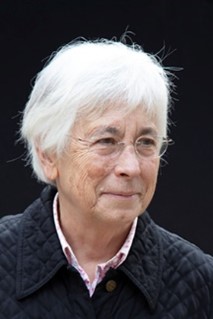| CANAL CES |
| PODCAST |
| TEMAS |
| PESSOAS |
|
Interview by: Ana Cristina Pereira and Rita Santos Diana Andringa nasceu em 1947, no Dundo, Lunda-Norte, Angola, vindo para Portugal em 1958. Dez anos depois, tornou-se jornalista na Imprensa escrita. Presa pela PIDE/DGS em Janeiro de 1970, pelo seu apoio à luta pela independência de Angola, foi condenada a 20 meses de prisão. De 1978 a 2001 foi jornalista, argumentista e/ou realizadora de documentários na RTP. Atualmente é documentarista independente e investigadora no CES-UC. Com a sua entrevista, completamos uma série de posdcasts já divulgados. Este é o último e não é por acaso. Diana Andringa relata-nos a sua vasta experiência no campo do jornalismo e a sua dedicação a um jornalismo crítico e exigente. Desde o confronto com o colonialismo, passando pela democratização do país, até à denúncia do racismo nos media em Portugal. Fala-nos, em particular do documentário “Era uma vez um arrastão…”, realizado em conjunto com Mamadou Ba (SOS Racismo) e Jorge Costa, com quem desmonta e denuncia a criação de uma notícia de algo que nunca aconteceu e que atribuía a jovens negros uma série de roubos numa praia. Considera que é “preciso ensinar as pessoas a ouvir”, o que se torna difícil perante o atual estado do jornalismo, quando há poucos jornalistas e pouco tempo para reflexão sobre os assuntos em causa, nomeadamente sobre o racismo. O projeto foi financiado pelo pelo FEDER – Fundo Europeu de Desenvolvimento Regional através do COMPETE 2020 – Programa Operacional Competitividade e Internacionalização (POCI) e por fundos nacionais através da FCT – Fundação para a Ciência e a Tecnologia (Referencia Projeto: POCI-01-0145-FEDER-029997) ----- English Version
With her interview we complete a series of posdcasts already released. This is the last, and not by chance. Diana Andringa tells us about her vast experience and her dedication to a critical and demanding journalism from the confrontation with colonialism, through the democratization of the country, to the denunciation of racism in the media in Portugal. He tells us, in particular, about the documentary "Era uma vez um Arrastão..." (2005), made together with Mamadou Ba (SOS Racism) and Jorge Costa with whom she dismantles and denounces the creation of a news story about something that never happened and that attributed to young black men a series of robberies on a beach. He believes that it is "necessary to teach people to listen," which is difficult in the current state of journalism, when there are few journalists and little time for reflection on the issues at hand, particularly racism. The project was funded by FEDER – European Regional Development Fund through the COMPETE 2020 – Operational Programme for Competitiveness and Internationalisation (POCI), and by Portuguese funds through FCT in the framework of the project 029997 (Reference: POCI-01-0145-FEDER-029997). pessoas
ligações
|





 Diana Andringa was born in 1947, in Dundo, Lunda-Norte, Angola, coming to Portugal in 1958. Ten years later, she became a journalist in the written press. Arrested by the PIDE/DGS in January 1970, for her support to the Angolan independence struggle, she was sentenced to 20 months in prison. From 1978 to 2001 she was a journalist, screenwriter and/or documentary director for RTP. Currently she is an independent documentary filmmaker and researcher at CES-UC.
Diana Andringa was born in 1947, in Dundo, Lunda-Norte, Angola, coming to Portugal in 1958. Ten years later, she became a journalist in the written press. Arrested by the PIDE/DGS in January 1970, for her support to the Angolan independence struggle, she was sentenced to 20 months in prison. From 1978 to 2001 she was a journalist, screenwriter and/or documentary director for RTP. Currently she is an independent documentary filmmaker and researcher at CES-UC.